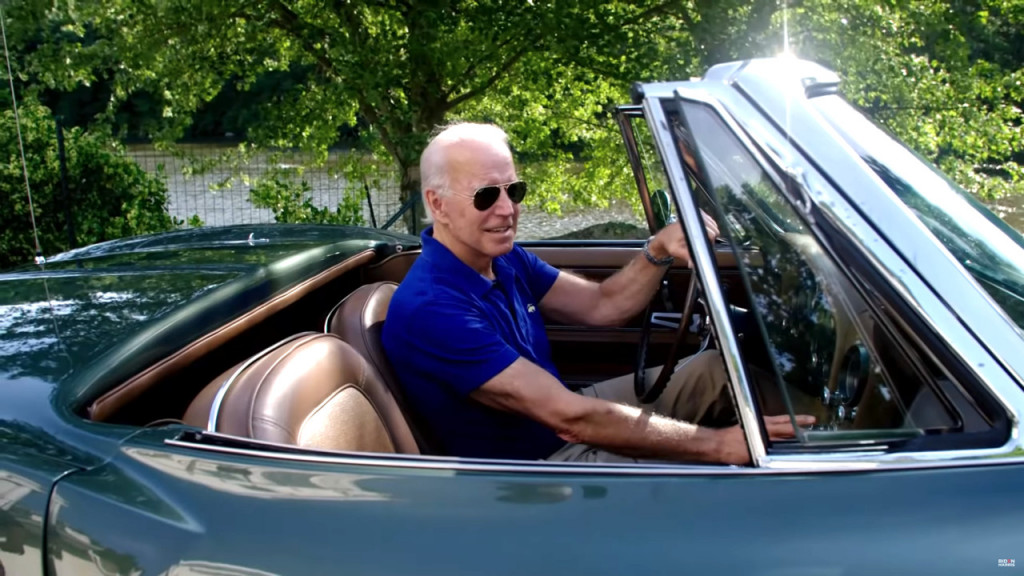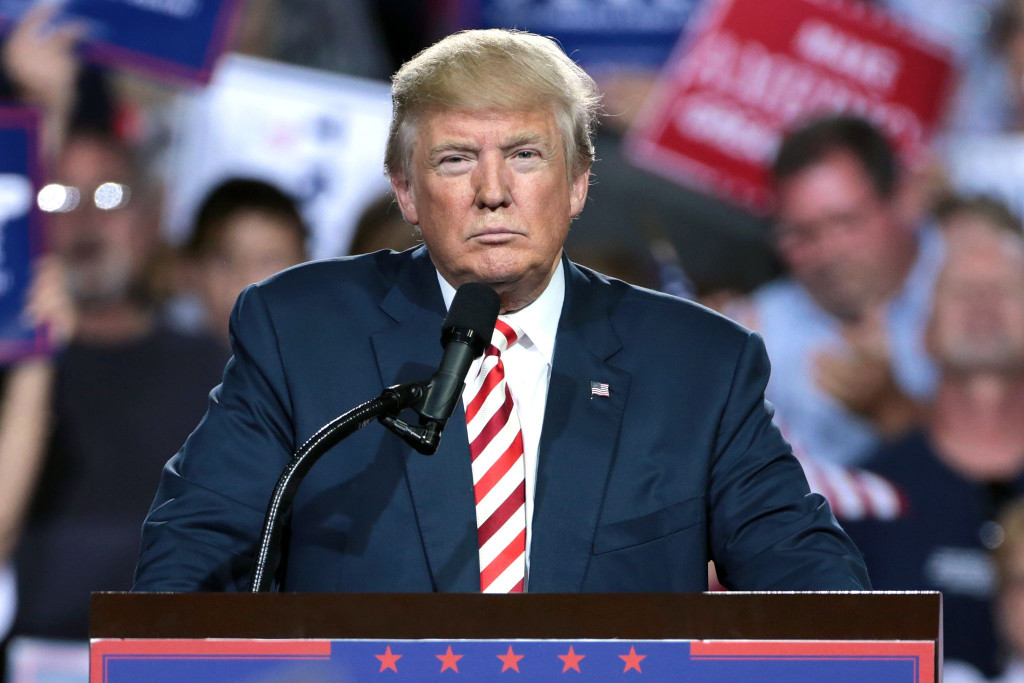A winner hasn’t yet been declared in this week’s U.S. Presidential election, but at least one auto-industry CEO has already spoken out about the anticipated outcome.
Volkswagen CEO Herbert Diess suggested on Thursday in a Bloomberg webcast—reported via Reuters—that a Biden win would be preferable for the company’s rollout of mass-market electric vehicles.
“A Democratic programme would be more aligned with our worldwide strategy to fight climate change to go electric,” he said.

Joe Biden in C2 Corvette - campaign video
Diess made his comment long after all U.S. votes had been cast, of course. But it underscores that VW, probably like a number of automakers who have each invested many billions of dollars into research and development of EVs this next decade, believes that it will be better off under Biden.
In market share, the U.S. is VW’s “weakest region in the world,” Diess said. However with VW’s focus on EVs, it could be poised to gain more share as the portion of the market that’s all-electric expands.
A Trump presidency has always been a real market test for electric cars. President Trump in 2019 proposed to eliminate the $7,500 EV tax credit. Although he didn’t get that, last December, as the credit was on the verge of being broadened and extended, with bipartisan support, as part of a federal spending bill, the White House reportedly wanted that cut out.

President Donald Trump (Photo courtesy Gage Skidmore/Wikimedia Commons)
Trump last year in Michigan made fun of electric car driving range, and less than two years ago said that “all-electric is not going to work,” sharply criticizing GM’s plan to focus toward an all-electric future as “a mistake.”
Ancillary to this, the administration has opposed California emissions rules—with support from GM, Toyota, and FCA, among others—while Volkswagen, Ford, BMW, Honda, and Volvo are among the companies that have continued to ally with California EV standards likely to form the basis of a Biden plan.

Vice President Biden, in Chevy Corvette
According to the Tax Policy Center, former Vice President Biden (or the Biden campaign) has said that as President he will restore the EV tax credit, target it to those with a household income below $250,000, and repeal the ceiling that effectively penalizes automakers like GM and Tesla that have reached the 200,000 cap.
President Trump has not mentioned electric vehicles as part of his second-term plan. On his official site, there is a list of accomplishments but no second-term plan outlining positions on related matters.
Volkswagen has already committed to building a large portion of its upcoming electric vehicles in the U.S.—in Chattanooga, Tennessee, starting in 2022, with local production of the ID.4 electric crossover and one other model.
Trump has also been increasingly critical of the trade imbalance between the U.S. and Germany. Although the U.S. is likely to continue its reassessment of trade agreements under a Biden administration, the process is likely to be far more predictable and even-keeled—something that foreign and domestic automakers alike will likely welcome.
